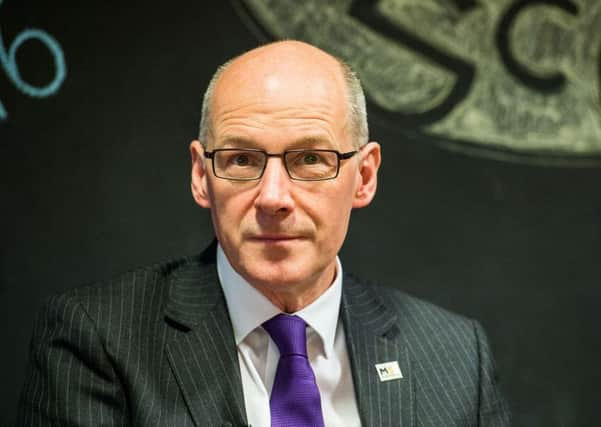SNP expect ‘court battles’ over new Holyrood powers


He warned MSPs there are “lots and lots of ways” that UK ministers could choose to block Holyrood from using new controls over key areas like welfare.
MSPs heard evidence from Mr Swinney and Scottish Secretary David Mundell on proposals to hand new powers to the Scottish Parliament in the aftermath of the referendum No vote.
Advertisement
Hide AdAdvertisement
Hide AdMr Mundell told the devolution committee that he would “work constructively” to deliver all the proposals contained in the Smith Commission agreement which hands Holyrood’s new controls over income tax and welfare.
The SNP claim that the Uk Government has a total of eight vetoes, including two relating to universal credit and a range of others covering areas like fuel poverty support schemes and green energy initiatives.
Mr Swinney said: “I observed this debate in the House of Commons when I was there a couple of weeks ago in the second reading of the debate. A lot was being made of the fact that the clause said that consent could not be `unreasonably withheld.’
“One of the Conservative members of Parliament, Bernard Jenkin, made the point that the fact there was this terminology in the Bill such as consent cannot be `unreasonably witheld’ was a justiciable term - and he’s probably right about that.
“But I don’t think that’s a good explanation - I think that’s a very bad explanation.
“It suggests that if we are so concerned about the stance on operational matters being taken by United Kingdom ministers when we want to pursue a particular thing we’ve got to go to the courts.”
Mr Swinney warned there have been “numerous” occasions during his eight years in office when various arguments have been put forward by Westminster to stop the Scottish Government implementing policies.
“There are lots and lots of ways which arguments can be put in place which can justify and can be presented as reasonabny withheld.”
Advertisement
Hide AdAdvertisement
Hide AdBut the UK Government rejects claims that it has a veto and said the need for “consent” relates to shared responsibilities.
Mr Mundell said: “I will continue to be constructive and look for ways to work with Members of both Parliaments, and to continue working closely with the Deputy First Minister and the Scottish Government.”
He added that the SNP’s Government’s demand for full fiscal autonomy would not be in the Bill.
“It would be bad for Scotland - leaving us with £10 billion less to spend by the end of this Parliament,” he said.
“The Government will resist changes to the Bill that would be bad for Scotland. The referendum result must be respected. The Scotland Bill is about strengthening Scotland’s position within the United Kingdom. It is not an opportunity for those whose ambition is to end the United Kingdom.”